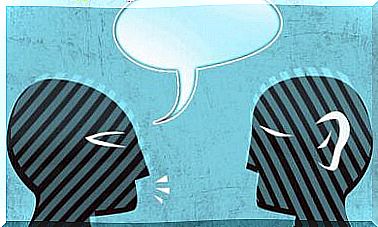Good Self-esteem Comes From A Job Well Done

One of the pillars that has a huge influence on our behavior is good self-esteem. How we feel, based on the image we have of ourselves, determines the goals we choose, the relationships we have and the intensity of our emotions.
But how can one achieve good self-esteem?
Self-esteem is based on a job well done. It’s not a lottery we might win on a beautiful day – it’s the fruit of our personal efforts.
When we look for definitive results, we must understand that it involves a process, and that process requires time.
Self-esteem is also one of the pillars that make up the human personality. In 2009, Abraham Maslow said that we need the respect and respect that is innate within us in the form of self-esteem.
He said we need them from others in terms of status, recognition and social success.
When we lack good self-esteem, we feel inferior, helpless, and discouraged, and we do not trust our ability to handle things. We often waste our efforts and seek external comparisons.
We focus our thoughts and actions to try to balance our personality.
To create a perception of ourselves
Self-esteem is considered an attitude (García, Cermeño and Fernández, 1991) and is the way we create an image of ourselves. We use it to judge how we think and feel about ourselves, and how we treat ourselves.
It has a lot to do with how we handle and evaluate our own identity.
First of all, in order to talk about the cognitive part of self-esteem, we must distinguish between what is understood by self-esteem and what is understood by self-concept.
Self-concept is defined as the image we have of ourselves in the cognitive, perceptual and affective dimensions. The self-concept can be associated with the representation people have of themselves.
Self-esteem, on the other hand, is understood as the positive or negative evaluation that a person makes regarding their self-concept. This includes associated feelings as well as attitudes people have towards themselves.

Good self-esteem comes with time
Having goals to hunt, setting goals and fighting for them are closely linked to well-being and mental health.
Setting goals in a positive way affects other parts of our lives and allows us to control important psychological aspects, such as attention, self-confidence and motivation.
One of the main causes or symptoms of depression is loss of hope and interest in our goals. Dr. Ellis says that problems with self-esteem arise from certain ways of thinking.
These can be irrational, illogical or self-destructive ways of thinking.
Sometimes our way of thinking contains illogical phrases that undermine our self-esteem. Some of these generic and irrational beliefs are:
- To believe that we must be competent and efficient in everything we do.
- A belief that others must love us and that we must receive recognition from important people around us .
- Things that have happened in the past determine our current and future behavior because they will always have a definite influence and will happen again.
- It is easier to avoid responsibilities and problems in life than to actually confront them.
- Human misfortune is rooted in external causes and we can do nothing, or almost nothing, to avoid or control the pain and suffering it causes.
Changing our self-esteem is not easy. It is naturally dynamic and sensitive, so modifying it for your own benefit is not easy. When it happens, it is the result of a series of actions, habits and skills, and it is something you create yourself.
Low self-esteem is like driving through life with the handbrake on

What is in front of and behind us is no more important than what we carry within us. None of them is more important than our perception of what we carry within us and how we define ourselves.
Our quality of life is influenced by our self-esteem – that is, how each person perceives and values themselves. It in turn controls the person’s behavior in the family, in social circles and individually.
Low self-esteem affects our relationships with others and is reflected in our social lives as well as the skills we use to tackle the daily challenges of life.
Having low self-esteem can make us feel completely incapable. We end up in a vicious circle of self-destructive mechanisms, such as negative emotions, obsessed ideas and misconceptions about how we interpret other people’s thoughts and feelings.
In short, it makes us less functional and precise.









